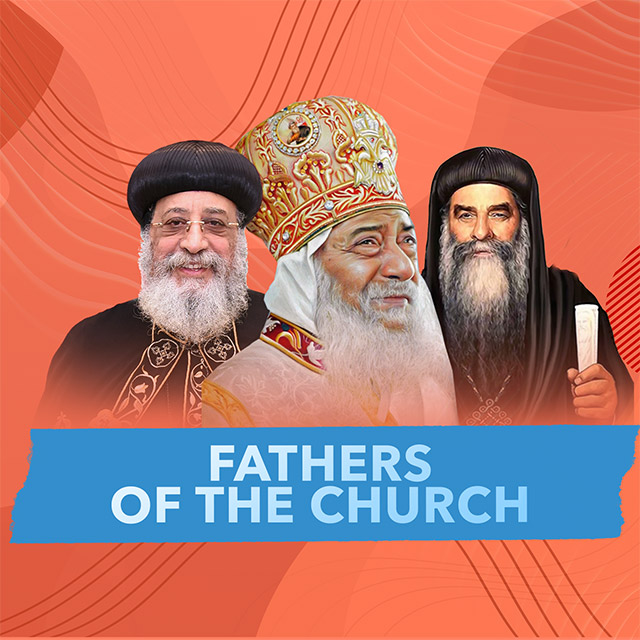The Virgin Mary is both “Mother and Virgin.” According to Christian belief, she is the Ever-Virgin. Theology and liturgy affirm that Mary remained a virgin before, during, and after the birth of Christ. She conceived Jesus Christ without the involvement of a man—this is her virginity before birth; she gave birth to Him and remained a virgin—this is virginity during birth; and she had no relations with any man afterward—this is virginity after birth. What Christianity proclaims may appear irrational, but with God nothing is impossible. The One who established the natural laws of conception and birth at the beginning of creation altered them in the case of His own incarnation, uniting in His mother the two greatest honors any woman could bear: virginity and motherhood.
By affirming Mary’s virginal conception, Christianity primarily aims to declare its faith that Jesus Christ is above all else the Son of God. This is the meaning of the first phrase in the Nicene Creed: “He was incarnate of the Holy Spirit.” The second phrase, “and of the Virgin Mary,” affirms the role of humanity in the mystery of the Incarnation. Thus, the mention of Mary’s virginity in the Creed signifies that the role of humanity in the Incarnation was simply to receive the gift of God. Mary, representing humanity, accepted God’s invitation, saying: “Behold, I am the handmaid of the Lord. Let it be to me according to your word” (Luke 1:38). The Creed therefore affirms two things: first, that Christ’s life on earth had its source in God alone; and second, that Mary participated in this mystery by receiving God’s gift.
⸻
- Mary’s Virginity Before the Birth of Christ
Scripture clearly affirms that Mary was a virgin before giving birth to Jesus:
• Matthew 1:18 – “Now the birth of Jesus Christ took place in this way. When His mother Mary had been betrothed to Joseph, before they came together, she was found to be with child from the Holy Spirit.”
• Luke 1:26–28 – “In the sixth month the angel Gabriel was sent from God to a city of Galilee named Nazareth, to a virgin betrothed to a man whose name was Joseph, of the house of David. And the virgin’s name was Mary.”
• Matthew 1:20 – “As he considered these things, behold, an angel of the Lord appeared to him in a dream, saying, ‘Joseph, son of David, do not fear to take Mary as your wife, for that which is conceived in her is from the Holy Spirit.’”
When the angel announced to Mary that she would conceive and bear a son named Jesus, she asked: “How will this be, since I do not know a man?”—meaning she was a virgin:
• Luke 1:31–34 – “Behold, you will conceive in your womb and bear a son, and you shall call His name Jesus… Mary said to the angel, ‘How will this be, since I am a virgin?’”
⸻
- Mary’s Virginity During Birth
The Byzantine liturgy declares:
“Today, a great and marvelous wonder has taken place: a virgin gives birth and yet remains a virgin. The Word becomes a child, yet is not separated from the Father. The all-perfect God becomes a child, and the child is born without diminishing His mother’s virginity.”
St. Jerome, one of the greatest Biblical scholars, said:
“Mary is both mother and virgin: a virgin before the birth, and a virgin after the birth. I am amazed: how could a virgin give birth to one who is Himself virgin? And how, after His birth, does His mother remain a virgin? Do you wish to know how a virgin gives birth and remains virgin? When Jesus entered through closed doors after His resurrection (John 20:19), you don’t know how, but you say: this is the power of God. Likewise, when you hear that Jesus was born of a virgin and she remained a virgin, say: this is God’s work.”
The divine child emerged from His mother’s womb without violating her virginal purity, but rather glorifying it with even greater splendor.
St. Gregory of Nyssa exclaimed:
“What a miraculous wonder! The Virgin becomes a mother while remaining a virgin. Virginity did not hinder birth, and birth did not destroy virginity. It was fitting that the One who came to heal mankind from corruption should begin by preserving His mother from corruption.”
He compared it to the burning bush that Moses saw, aflame but not consumed (Exodus 3): as the bush was on fire yet unharmed, so too did the Virgin give birth to the Light without losing her purity.
Thus, anyone who claims that Mary lost her virginity during Christ’s birth—perhaps thinking it’s impossible—is in fact limiting God’s infinite power. The God who is omnipresent can enter and exit the virgin womb without rupturing it. Mary remained a virgin before conception, throughout pregnancy, and after birth. This is why the Church calls her the Ever-Virgin, a belief held by the early Church, by the Apostles and their successors, and grounded in Scripture.
The prophet Isaiah foretold a painless birth:
• Isaiah 66:7 – “Before she was in labor she gave birth; before her pain came upon her she delivered a son.”
And with Christ’s birth, Isaiah’s prophecy of universal joy was fulfilled:
• Isaiah 66:10 – “Rejoice with Jerusalem, and be glad for her, all you who love her.”
• Luke 2:10 – “The angel said to them, ‘Do not be afraid. I bring you good news of great joy for all the people.’”
In the 2nd century, St. Irenaeus interpreted Isaiah 66:6–8 as a prophecy of Mary’s miraculous and painless childbirth, affirming her perpetual virginity.
Ezekiel’s prophecy also supports this doctrine:
• Ezekiel 44:2 – “Then the Lord said to me: ‘This gate shall remain shut; it shall not be opened, and no one shall enter by it, for the Lord, the God of Israel, has entered by it. Therefore it shall remain shut.’”
St. Jerome noted that just as Christ entered the tomb and emerged with it still sealed, and appeared to the disciples through locked doors, so He was born of Mary without violating her virginity.
The Song of Songs also hints at her perpetual virginity:
• Song of Songs 4:12 – “A garden locked is my sister, my bride, a spring locked, a fountain sealed.”
Just as light passes through glass without breaking it or water leaking, so did Christ pass through Mary’s womb without damaging her virginal seal.
⸻
- Mary’s Virginity After Birth
- Denying Mary’s postnatal virginity contradicts Ezekiel’s prophecy of the permanently sealed gate—her womb, through which only the Lord entered and no other.
- During the flight to Egypt and return (when Jesus was 2–5 years old), no siblings are mentioned—only Mary and the child Jesus—refuting claims that Mary had other children after Christ:
- At age 12, when Jesus remained in the Temple, Scripture still refers only to Mary and Joseph—no siblings are mentioned after 12 years of shared household:
- “Brothers of the Lord” are only mentioned later, and they are actually Jesus’ relatives, not biological siblings.
- The so-called “brothers” are sons of Mary, the wife of Clopas, Mary’s sister, who was present at the Crucifixion:
- The names James, Joses, Simon, and Judas (Matthew 13:55; Mark 6:3) are likely her sister’s sons. In Jewish culture, an aunt is often referred to as a mother.
- At the Crucifixion, Christ entrusted His mother to John, not to any “siblings”—a clear indication that she had no other children:
- Tradition holds that Joseph was a carpenter, and Jesus also practiced carpentry (Matthew 13:55; Mark 6:3). Joseph likely died when Jesus was between 16–19, and Jesus, in obedience to God’s law (“By the sweat of your brow you shall eat”), supported His mother. There is no record of Mary marrying again or leaving Joseph’s home—affirming her continued virginity and consecration to God.
⸻
Conclusion:
Mary was a virgin before, during, and after the birth of Christ. The title Ever-Virgin is not merely poetic; it expresses the Church’s unwavering faith, rooted in Scripture, prophecy, and early Church Tradition, that the Theotokos (Mother of God) remained perpetually pure, a vessel uniquely sanctified for the Incarnation of the Word.












